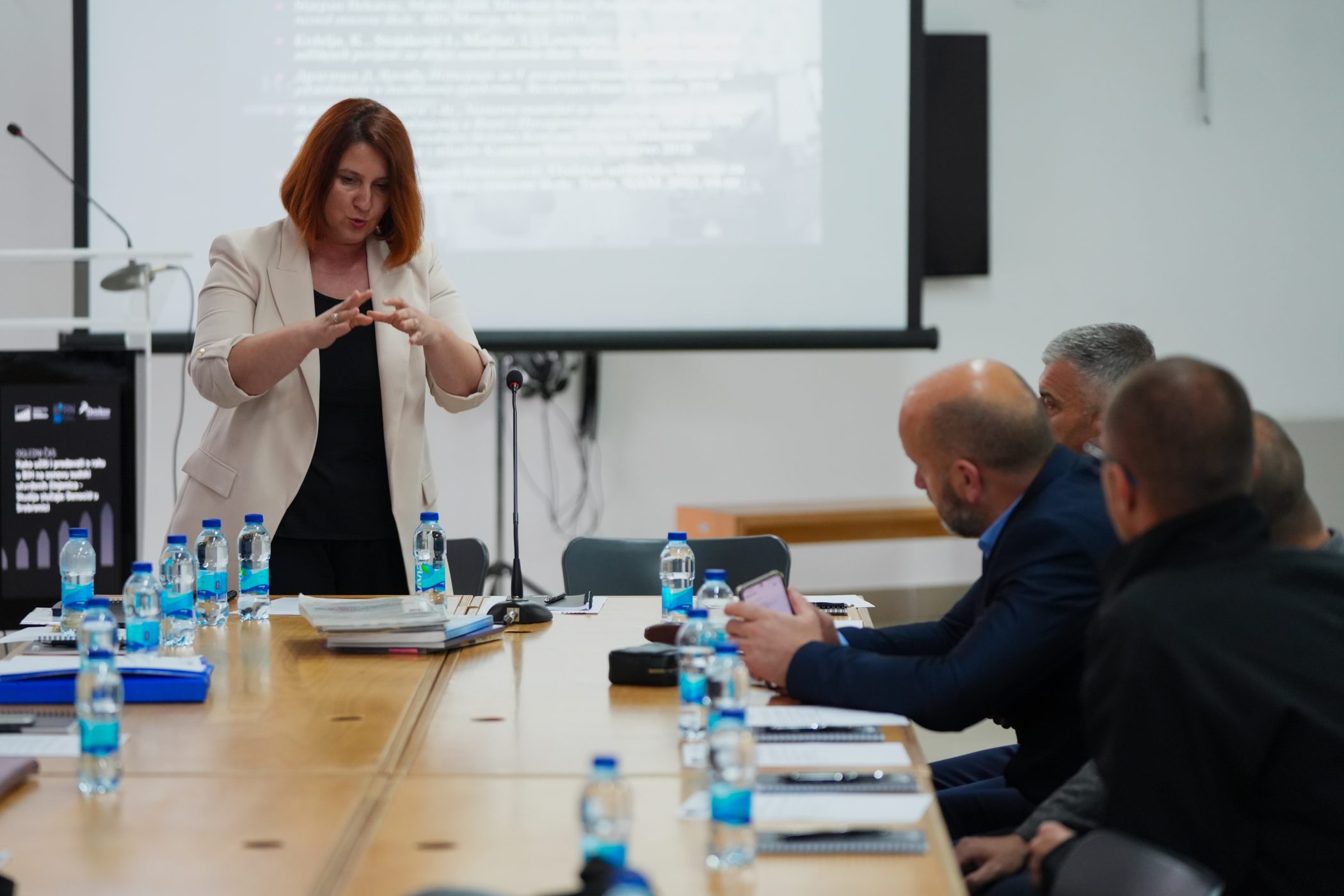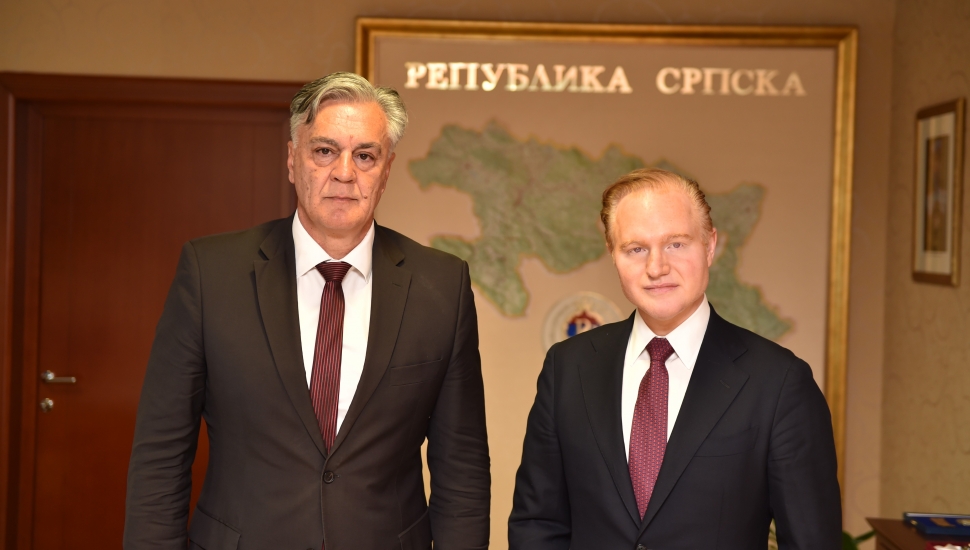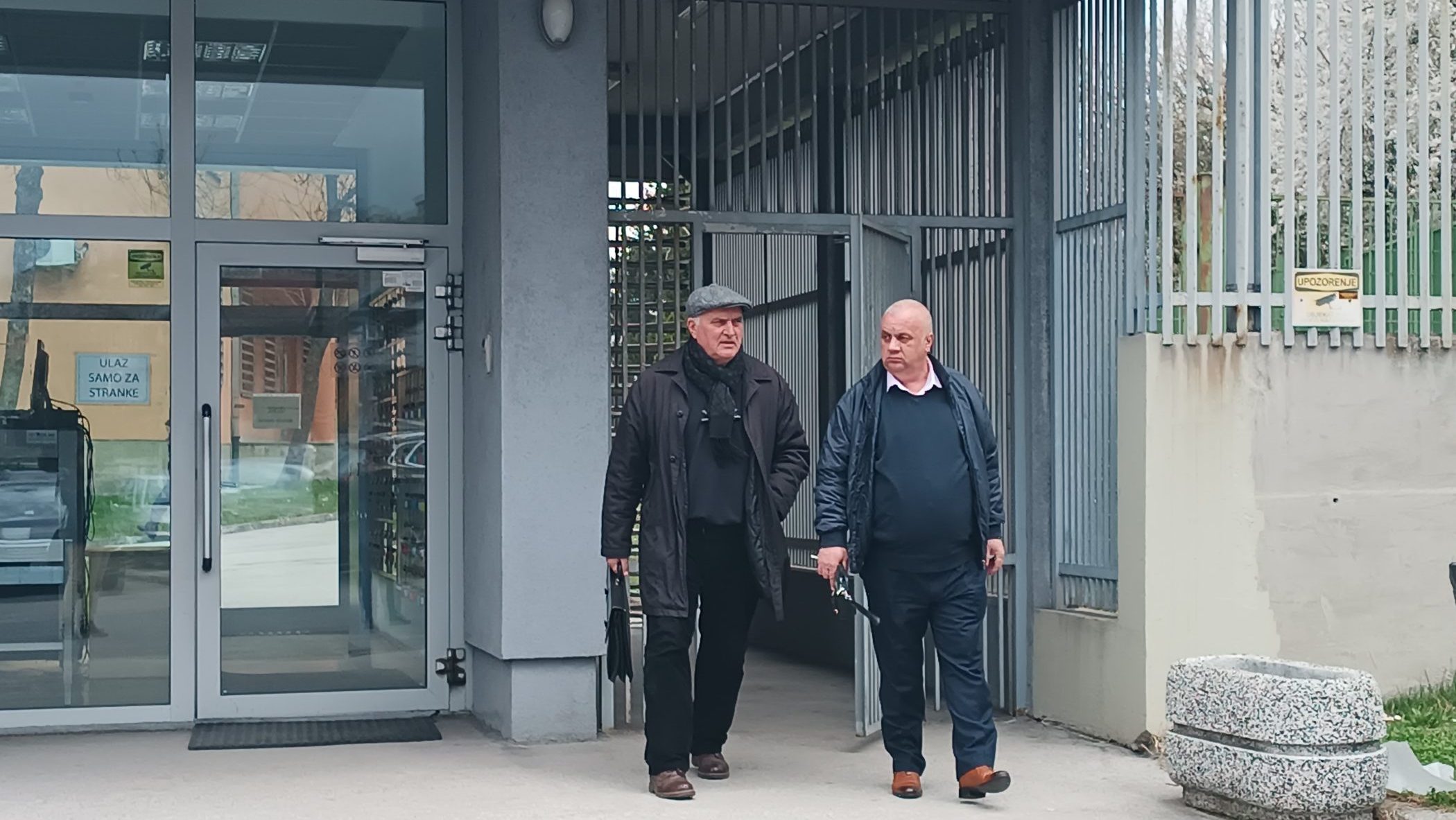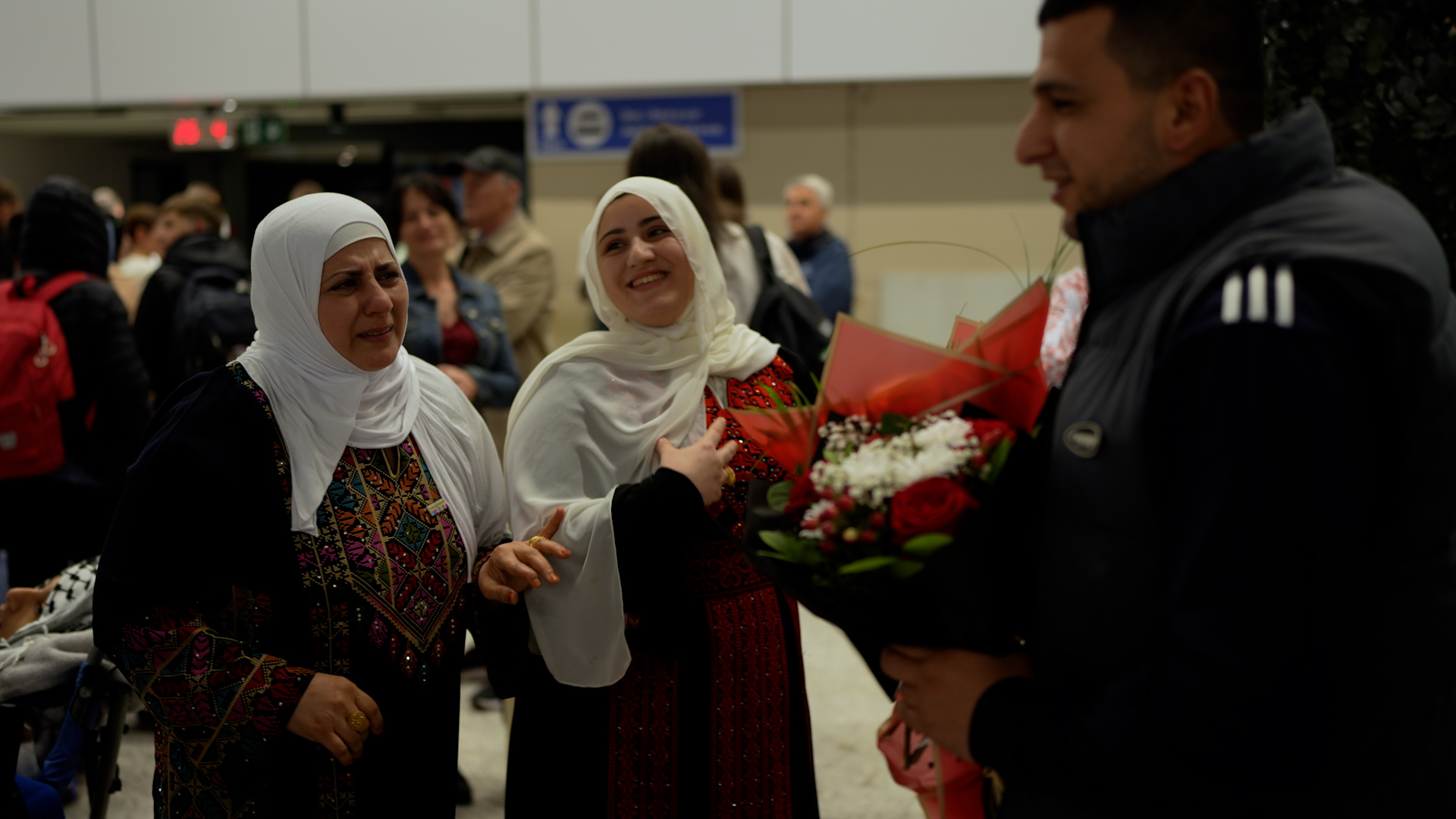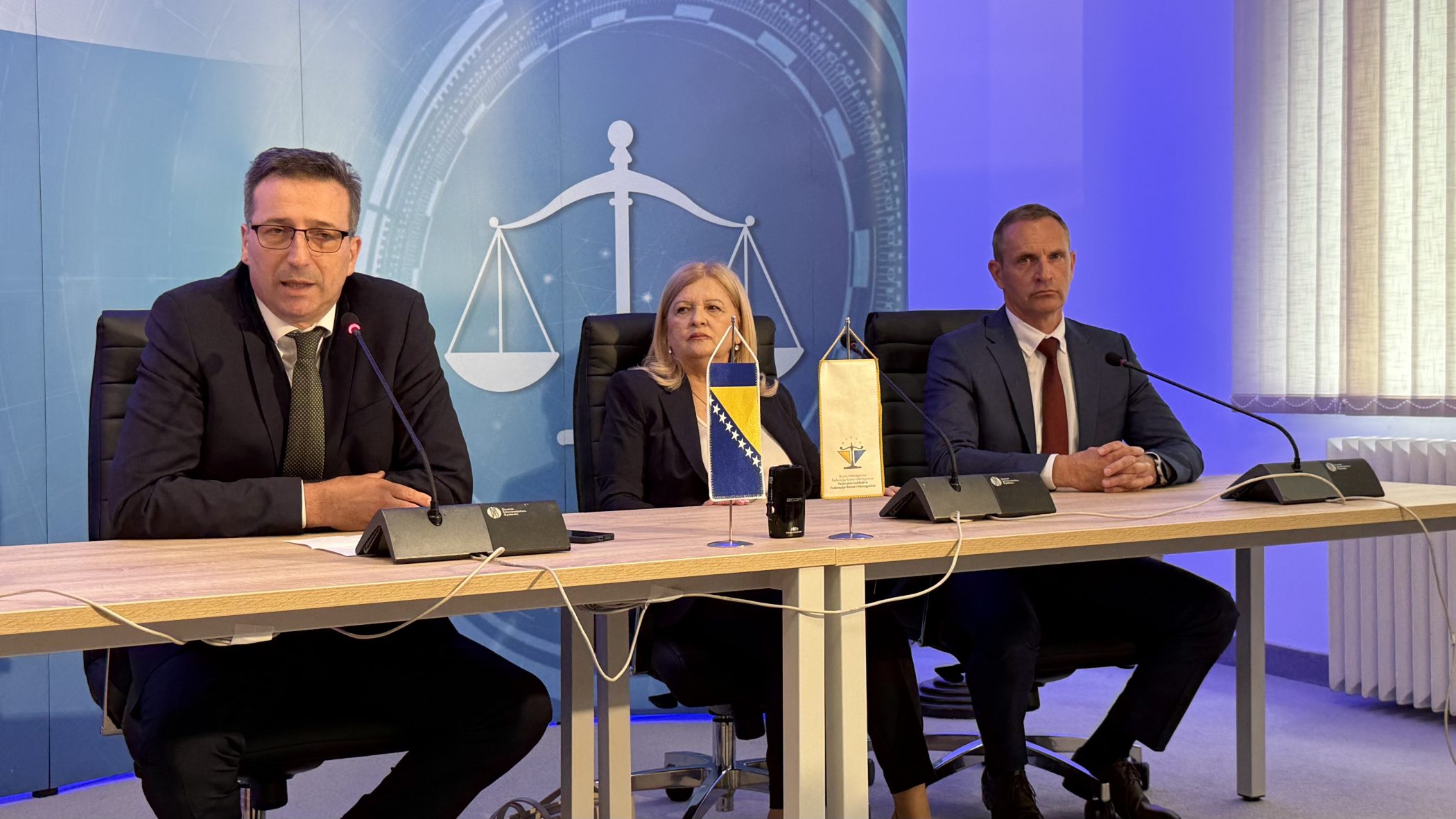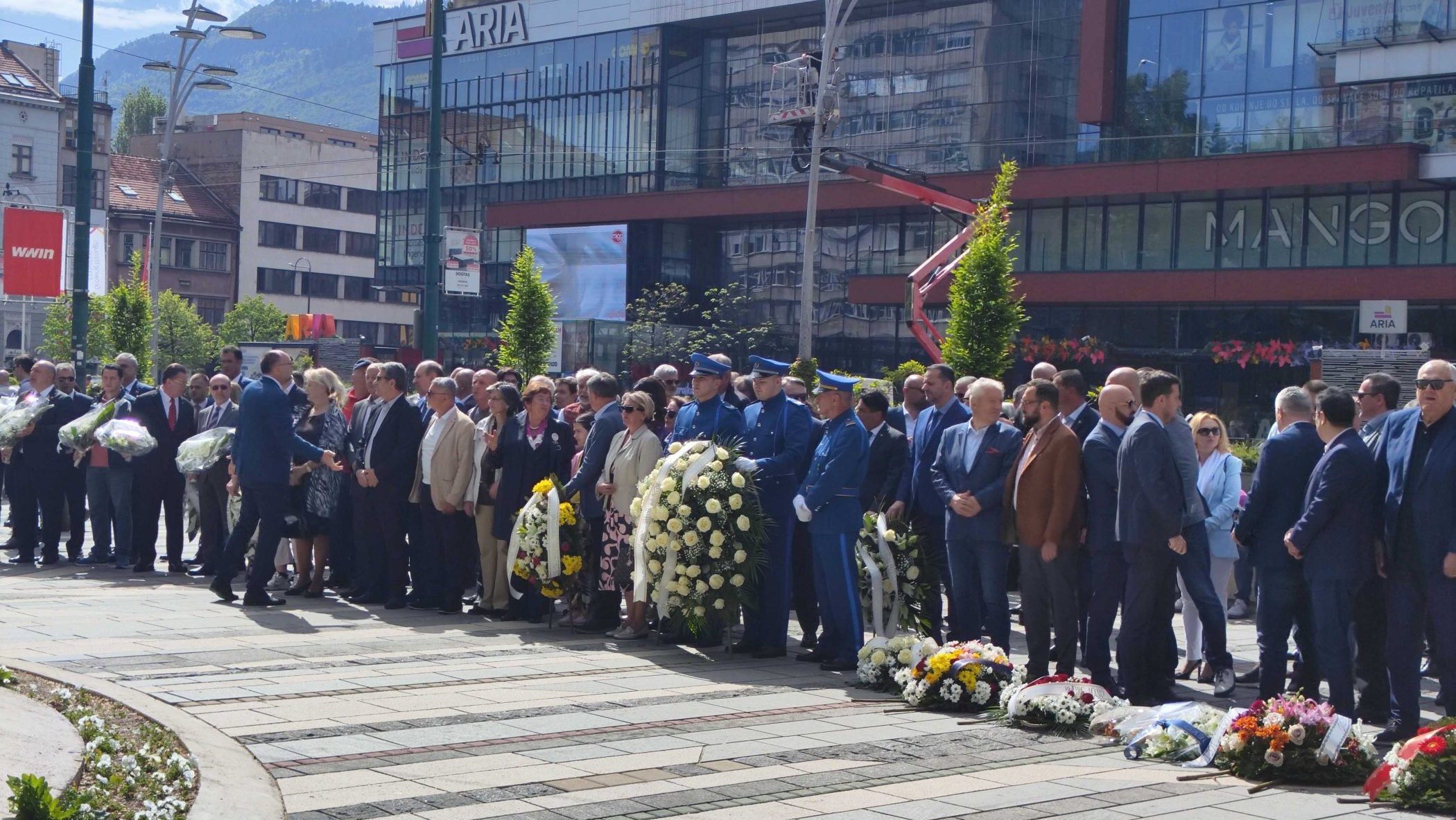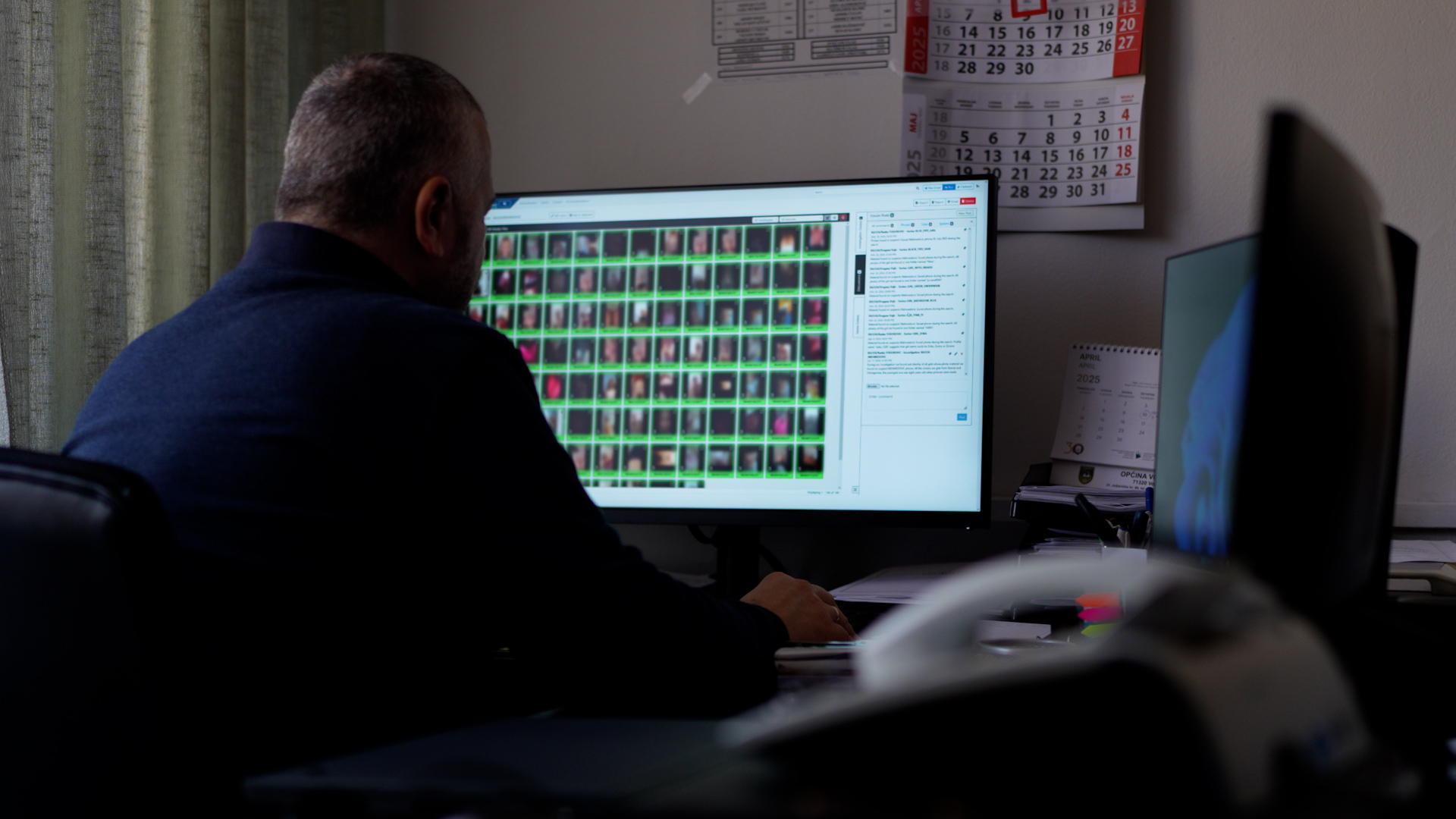Supporters of Radnik FC from Bijeljina recently chanted the name of convicted war criminal Ratko Mladic during a match, but the Football Association declined to say whether it has issued...
History professor Melisa Foric Plasto and Detektor journalist Haris Rovcanin held a class on the Srebrenica genocide based on materials from the Database of Judicially Established Facts about the war...
Pro-government media in Republika Srpska claimed that an American lawyer visiting Bosnia to allegedly investigate misspending by USAID was an envoy of the US administration – except he wasn’t.
Three decades ago, two-year-old Sandro was among 71 people who were killed when a shell fired from Bosnian Serb Army positions hit a youth gathering in the city of Tuzla....
The Bosnian state court sentenced Vojin Pavlovic, the head of a Bosnian Serb NGO, to two-and-a-half years in prison for inciting hatred by denying the Srebrenica genocide and glorifying Ratko...
Palestinian couple Mustafa and Alia Shaheen were about to celebrate their wedding when they were divided by Israel’s Gaza offensive in October 2023. Alia fled to Sarajevo, where they reunited...
Almera Paraganlija, who was a year old when she and her mother were killed in the village of Joševa, is one of five war victims being buried at a collective...
A new special department at the supreme court and prosecutor's office in Bosnia and Herzegovina’s Federation entity, established to tackle corruption and organised crime, is expected to take on more...
As a day of remembrance for the children killed during the siege of Sarajevo was marked, three decades on, the direct perpetrators are yet to be held accountable.
The Movement of Mothers of Srebrenica and Zepa Enclaves association has submitted a request to the municipality of Srebrenica to establish memorials at five mass grave sites in Zeleni Jadar...
BIRN BiH, Srebrenica Memorial Centre and Forgotten Children of War Association launch joint initiative designed for students and teachers on judicially established facts about the Bosnian war.
After the first arrest for possession of AI-generated child sexual abuse images in Bosnia and Herzegovina, Detektor magazine examines how the police find out who is behind artificially-generated videos depicting...


